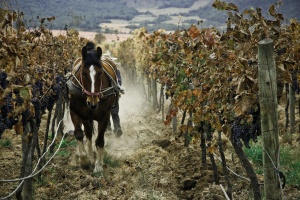Organic wine will remain niche market, despite surge in sales says IWSR

Organic wine sales are set to rocket in the next five years as increasingly ecologically aware consumers switch to pesticide free beverages.
However, their market share will remain relatively small worldwide, according to a newly released study by the IWSR whic has shown that sales of organic still wine will reach one billion bottle sby 2022, up from 676 million last year and nearly three times the 349 million bottles sold in 2012.
Despite this growth in sales, this would mean that organic wines - those cultivated without chemical pesticides or fertilizers – would still only account for 3.6% of the total market, as compared to 2.4% in 2017.
“There is a big margin for organic wine to keep rising,” said the IWSR research director Jose Luis Hermoso, speaking to Reuters.
Nearly 80% - or four bottles in every five - sold last year were in Europe, Germany, France and the UK accounting for a full half of the total market. Sales of organic wine in France are notably strong, with the market share expected to hit 7.7% by 2022.
Chateau Latour is one of the latest estates in France to gain its organic wine certification, but many other producers have abandoned their organic initiatives, discouraged in some cases by increased criticisim of the use of alternative pesticides such as copper and sulphur, or by fungi attacks on their unprotected vines.
There has been a slowdown of vineyards switching to organic in recent months within the key producing nations, and the IWSR predicts that by 2022 there will be 545,000 hectares earmarked for organic production, compared to the 408,000 in 2017 and 284,000 in 2012.
